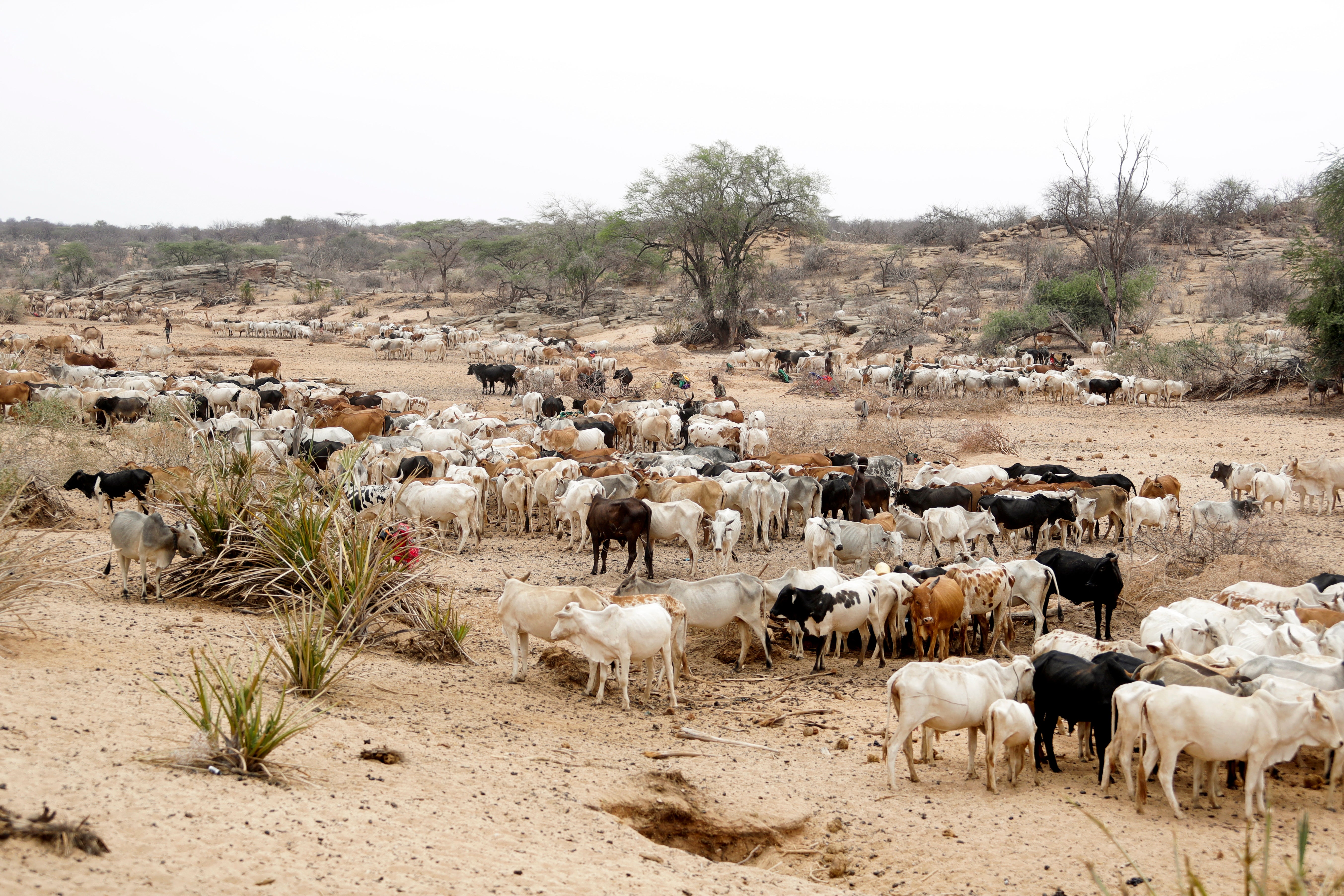5 countries in East and southern Africa have anthrax outbreaks, WHO says, with 20 deaths reported
The World Health Organization says five countries in East and southern Africa are in the middle of outbreaks of the anthrax disease with more than 1,100 suspected cases and 20 deaths this year

Your support helps us to tell the story
From reproductive rights to climate change to Big Tech, The Independent is on the ground when the story is developing. Whether it's investigating the financials of Elon Musk's pro-Trump PAC or producing our latest documentary, 'The A Word', which shines a light on the American women fighting for reproductive rights, we know how important it is to parse out the facts from the messaging.
At such a critical moment in US history, we need reporters on the ground. Your donation allows us to keep sending journalists to speak to both sides of the story.
The Independent is trusted by Americans across the entire political spectrum. And unlike many other quality news outlets, we choose not to lock Americans out of our reporting and analysis with paywalls. We believe quality journalism should be available to everyone, paid for by those who can afford it.
Your support makes all the difference.Five countries in East and southern Africa are in the middle of outbreaks of the anthrax disease, with more than 1,100 suspected cases and 20 deaths this year, the World Health Organization said Monday.
A total of 1,166 suspected cases had been reported in Kenya, Malawi, Uganda, Zambia and Zimbabwe. Thirty-seven cases had been confirmed by laboratory tests, WHO said. It said the five countries have seasonal outbreaks every year, but Zambia was experiencing its worst since 2011 and Malawi reported its first human case this year. Uganda had reported 13 deaths.
Anthrax usually affects livestock like cattle, sheep and goats, as well as wild herbivores. Humans can be infected if they are exposed to the animals or contaminated animal products. Anthrax isn't generally considered to be contagious between humans, although there have been rare cases of person-to-person transmission, WHO says.
Anthrax is caused by spore-forming bacteria and is sometimes associated with the weaponized version used in the 2001 attacks in the United States, when five people died and 17 others fell sick after being exposed to anthrax spores in letters sent through the mail.
Anthrax bacteria also occurs naturally in soil.
In a separate assessment of the Zambia outbreak, which was the most concerning, WHO said that 684 suspected cases had been reported in the southern African nation as of Nov. 20, with four deaths. Human cases of anthrax had been reported in nine out of Zambia's 10 provinces. In one instance, 26 people were suspected of contracting the disease from eating contaminated hippopotamus meat.
WHO said there was a high risk that the Zambian outbreak would spread to neighboring countries.
The outbreaks in all five countries were “likely being driven by multiple factors, including climatic shocks, food insecurity, low-risk perception and exposure to the disease through handling the meat of infected animals,” WHO said.
___
AP Africa news: https://apnews.com/hub/africa